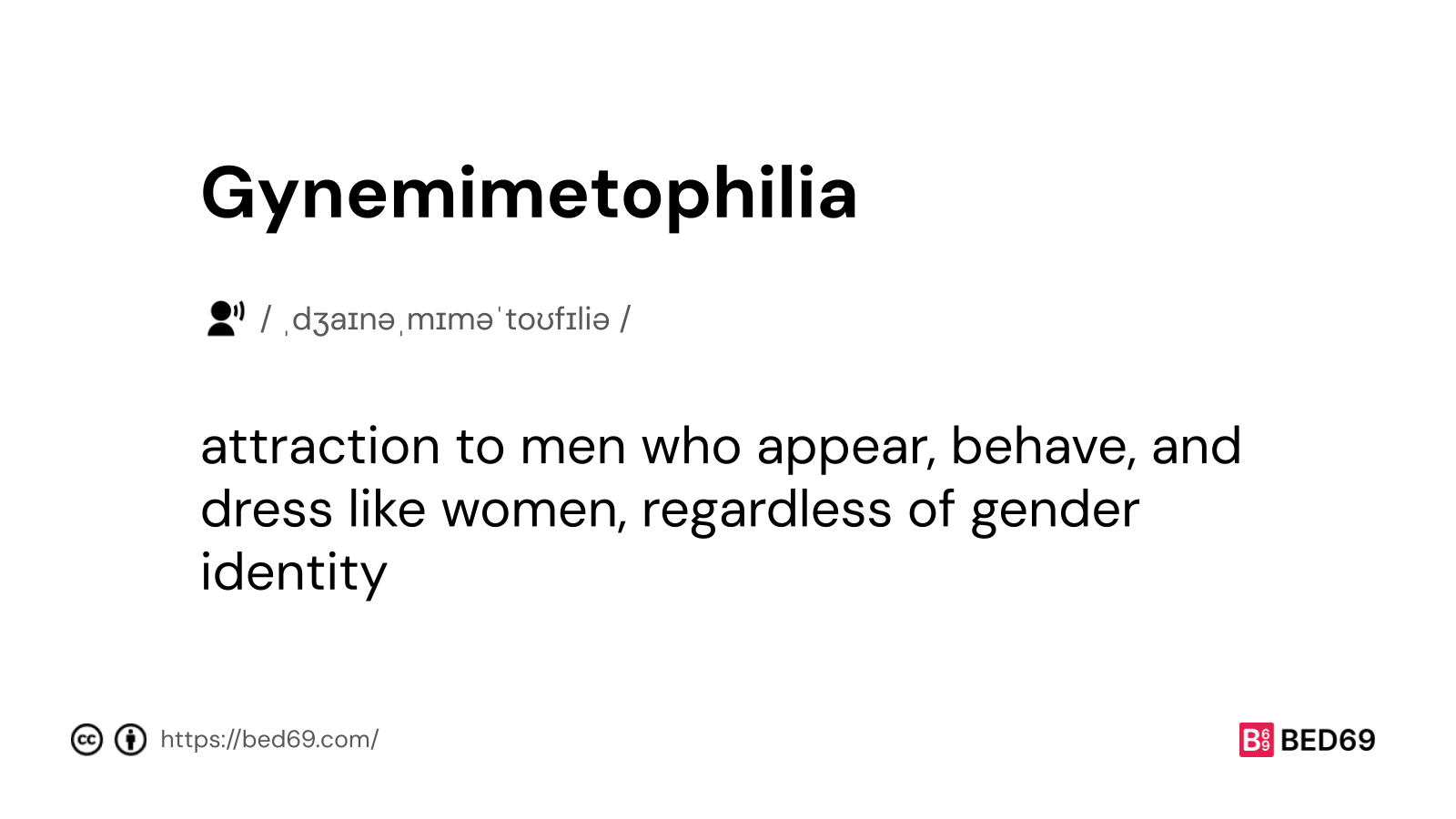What is Gynemimetophilia?
Gynemimetophilia is a strong attraction to men who appear, behave, and dress like women. The focus is on visual, auditory, or tactile aspects, regardless of the person’s gender identity. Views on this attraction vary; some see it as a disorder, while others aim to reduce stigma and bias.
Gynemimetophilia pronunciation: / ˌdʒaɪnəˌmɪməˈtoʊfɪliə /

What are the origins of Gynemimetophilia
Gynemimetophilia traces back to the strong appeal some have towards men who exhibit feminine traits, regardless of their gender identity. This attraction centers on visual, auditory, or tactile stimuli, showcasing a complex interplay of desires.
Opinions on gynemimetophilia diverge. Some view it as a potential disorder demanding professional attention, potentially impacting how society perceives transgender individuals negatively. However, others advocate for destigmatizing this attraction, thereby lessening the bias and discrimination faced by transgender women.
The focus remains on the intense romantic or sexual draw towards males presenting as women. This attraction can include individuals beyond those who identify as transgender, extending to cross-dressers as well. In essence, gynemimetophilia reflects a multifaceted phenomenon within romantic and sexual preferences, often transcending traditional gender boundaries.
Impact of Gynemimetophilia on individuals and society
The impact of Gynemimetophilia extends beyond personal attractions, influencing both individuals and society. While some label it as a psychiatric disorder needing treatment, others advocate for reducing stigma. Such differing perspectives can shape how society views transgender individuals, affecting their acceptance and well-being.
By understanding and addressing these attractions without pathologizing them, we can promote inclusivity and respect for diverse expressions of gender identity. This approach can foster a more empathetic and supportive environment for individuals exploring their identities, regardless of societal norms or prejudices. Ultimately, discussions around Gynemimetophilia can contribute to broader conversations about acceptance, diversity, and inclusivity.
Explore other interesting terms:
